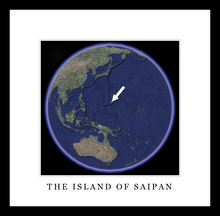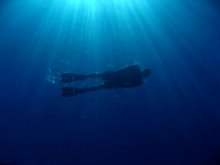
This was my day today, and I think it may give some perspective on why I do what I do:
With no real plan for the day, I awake. I eat some cornflakes with a fresh local platano in my guesthouse room, and walk down to “Tiny’s Internet Café”


for a hot cup of Joe and to check my email. The fishermen are already out along the shore working on their boats. Less than two weeks until lobster season opens and that’s what these guys live for.

I sit at the crudely hand-made “tiki-style” bar as I wait for Antonia (“Tina”) to turn on the internet, while we chat about the verb “madrugar” which means “to wake up” but is literally translated as something like “to dawn”. I tell her I like that word. I’m still dawning. About 5 minutes later I’m checking my email and sipping a cup of fresh Nescafe Instant. I catch up with my girlfriend over chat, get advice from my brother about getting a new dog, and make a quick book recommendation to an old friend who I still keep in touch with now and again. Faustino (“Tino”) comes in shirtless with sandals as usual and asks if I’m going to my rounds with the fishermen again today. I say yes, feeling good about myself because yesterday morning he took one look at me and said, in Spanish, “Who died?”. Their son, “Tiny” (as in, Small "Tino") hasn’t madrugada yet. If you haven’t put it all together yet, Father, Mother, and Son are Tino, Toni, and Tiny. (Tiny’s in his 20’s, by the way.)
I hit the dirt road walking, with a plan I formulated over coffee. I’m going back to Dylan Sosa’s house where I had a good but Spanishly difficult interview with a fisherman and his two fishermen sons. There’s definitely not as much English spoken here as in other parts of Belize, and I’m feeling rusty. It’ll come back.
My plan to confirm this list of names of fishermen who fish in the South is temporarily derailed when I pass a “tortilleria” aka the local totilla-making shop called (translated) the "Speedy Tortilla Shop".

Now I undrestand what that woman I interviewed two days ago meant when she said, “It’s a good life here in this village. We have everything: a school, a store, and a tortilleria.” It’s a small wooden building with a vent on the roof and I can’t help but poke my head in.

I start chatting with the old man who explains to me how they make these corn tortillas. He’s feeding corn kernels through a grinding machine and a doughy substance is coming out below in a catch bucket.

He tells me they get their corn from the German Mennonite community in Little Belize, not too far from Sarteneja. He asks me if I’m from Mexico and compliments me on my Spanish, which makes me feel good because I had a rough day with the language yesterday. He tells me to come back in an hour because they are going to turn on the oven and start making the tortillas.
I walk out and remember my plan: Dylan’s house, check the names. I forgot to do that when I was talking to him yesterday. I arrive at the house, and nobody’s outside. I knock on the downstairs door and they tell me to go upstairs up the outside staircase (interior staircases don’t seem to exist here). I go upstairs and can’t see through the screen door but I hear a voice and out comes Dylan. He seems glad to see me, and I ask him if I can get the names of the other southern fishermen to compare those names to the names on my list. He sends me downstairs and we sit on the stairs chatting. My list is good; I’m only missing one name. When I ask where these guys live, he starts to tell me but then says “I’ll just show you.” He yells to a woman downstairs to see if we can borrow a bike.
Next thing I know I’m riding down a dirt road on an old rusty single speed fat tire beach cruiser with a seat that’s way too low and cruiser style handlebars, notebook in hand. He’s chatting as we go along, and then we stop at one house, and he yells to a guy about a bike, then he takes the third bike and points out a house down the road where one fisherman lives. Then we ride back to the house, and leaving the bike I was on, I resume on the 2nd bike he had just borrowed. This one fit’s a bit better but has one half-flat tire and a pedal’s missing which makes it hard to pedal in my sandals but most everybody else is cruising around barefoot, so I think I'll be fine.
We wind through the unfamiliar, typically car-less dirt streets lined with mostly unpainted cinder block houses, a thatched roof here and there, and flooded yards form the big storm the other night. Everything looks the same to me. He points down one street, says that’s so-and-so’s house, then we ride, I happen to take mental note of a church or a store that I had seen before. Teobaldo lives THERE. We continue, turn, turn again. Romeldo lives THERE. “OK“, he says, “now you know where all the guys live, you can use this bike today and just bring it back and leave it at the house when you are done.” I realize that we’re back near his house, and he bids me farewell.
I manage to negotiate my way back to the first house, and a young guy with 2 kids is outside and walks up to me (picture Gringo on local bike carrying notebook).
Now at this point I forget who lives here, because I just got the tour of 4 houses and 4 names and they are all mixed up in my head. I say that Dylan told me that a fisherman who works in the south lives here. He says, yah, its his dad, and I figure out it’s the house of Antonio. One down … but he’s out, and I should try to come back this afternoon. He should be back then. I pedal away, wind my way back by Dylan’s house and hope I can find the others. I remember the pink house, so I stop there and an old lady comes out and after a little wrangling I figure out it’s the house of Armando. But he’s not here, he’ll be back in the afternoon. Two down.
I pedal on, and think I remember the third house. I get it right, amazingly, and now its down to two names so I guess and ask for Teobaldo and my 50-50 chance paid off. And he’s home. But he’s working on the roof on this little shelter-like addition on the side of his house. He says to come back tomorrow early in the morning. Before 8. The earlier the better, because he has to work on repairing his cooler. The fishermen have these huge iceboxes that they keep on the sailboats to store their catch in. Three down. I pedal away, noticing that all the fishermen seem to be out and about making repairs to coolers, to the “cayuko” one-man canoes that they stack 5-high on their wooden sailboats, or on the boats themselves.
I stop at the corner house. I really can’t remember where this last one was. I ask if Romeldo lives here. No, they say, next street up. On the corner. I pedal on. This house has a gate and a fence and I can hear the TV on through the windowless cinderblock windows. I yell “hello!” and “good morning” in Spanish a few times, to no avail. I reach through the fence, undo the latch, and walk up to the front door. Is it OK to just walk up to someone’s gated house like this? I knock and yell hello. I hear something, then notice the door knob turn then turn again slowly like something out of a low-budget horror flick. It opens, and a young guy in his 20’s greets me. I ask for Romeldo and he says its his father, that he’s not home. But then he invites me in. I kick off my muddy sandals and walk in. His young daughter is swinging in the living room hammock watching cartoons. He seats me in a folding camp chair with some torn flower patterned cushions on top. We chat a bit, I tell him about my study, and he seems interested. He’s a student at the University in Belmopan and is studying nursing. He knows the professor of natural resource management that I met on my dive boat last weekend. He tells me that he went out fishing a few times with his father, but then decided to continue his schooling. We talk a bit about protected areas. Eventually I get up to leave and he over-politely bids me farewell. As I close the outer gate yells to me and asks if I eat mangos. “Of Course!” I say and he re-emerges with a bag of gigantic papaya sized “Apple Mangos” that are from his dad’s “milpa” or farm. It turns out to be his grandfather’s farm, but his dad still keeps it running. Another example of grandfather-farmer, father-fisherman, son-something else. It’s funny how you get information like this just from something like a gift of mangos. Four down. I pedal on, mangoes in hand.
I head back to Dylan’s house to return the bike and, smelling something warm, I suddenly remember: the tortilleria! There are a few people lined up to buy fresh-from-the-machine tortillas. I walk in, they greet me warmly, and I ask if I can go behind the counter to take some pictures. The old man feeds the dough into the machine, the dough gets pressed, cut into circles, and flopped onto the rotating flat metal feeder that goes into the oven. On the other side fresh warm corn tortillas emerge, piping hot and perfectly browned, and feed onto a wire conveyor belt to the awaiting hands of the 2nd of 2 employees who collects them, stacks them, and then weighs and packs them for the awaiting customers.
The old man asks me if I want to try one, and then pulls one off the conveyor belt, rolls it very professionally between his dark, flour-covered hands and hands it to me. One word: DELICIOUS.
I get on the bike smiling, thinking about how lucky I am to be here, doing this intentionally random type of work. Besides my somewhat formal interviews, I am also here to do something called “observational ethnography” and it entails just living somewhere a while and getting a sense of the place and how it works. I’m going to like this, I think to myself, as I return the bike to Dylan’s house. Walking back past the tortilleria, I can’t resist and stop in again, this time with a $2 Belizean bill in my hand ($1 US) and ask for a pound of tortillas not knowing how much it will be. It’s a huge stack, so I tell her to halve it. She does, I get BZ$1.25 back in change, and walk back home with a bag full of hot, fresh tortillas, munching on one as I go.
I head back to Antonia’s where my homemade chicken and vegetable soup lunch is ready and waiting for me, which I eat with my stack of fresh tortillas and my usual “Fanta Orange” out of a large 500mL glass bottle.

I may need a siesta after a lunch this size, but eventually I’ll head back down the dirt road to find and interview these elusive fishermen…




























